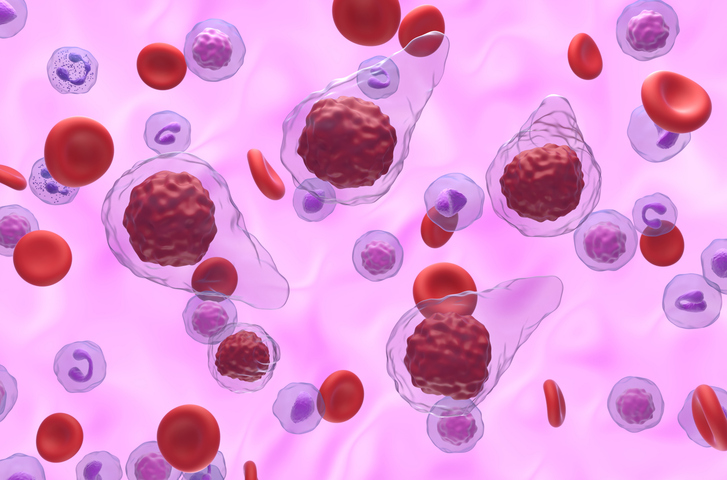
Selinexor plus ruxolitinib continues to demonstrate rapid, deep, and sustained spleen responses in patients with myelofibrosis, according to updated data from the phase I XPORT-MF-034 trial.
Previous data from the phase I study supported the use of a 60-mg selinexor dose plus ruxolitinib for a phase III trial of the combination. Haris Ali, MD, of the City of Hope Comprehensive Cancer Center, presented updated data on the 60-mg cohort of the study, as well as a subgroup analyses, at the Eleventh Annual Meeting of the Society of Hematologic Oncology.
In the open-label, phase I study, patients with treatment-naive myelofibrosis received 40 mg and 60 mg once weekly selinexor plus ruxolitinib. As of April 10, 2023, 14 patients had received the 60-mg selinexor dose; of these, 36% were female.
At week 12, 83% of the efficacy evaluable population (10 of 12 patients), and 71% of the intent-to-treat population (10 of 14 patients) achieved spleen reduction volume (SVR) of 35%. By week 24, these rates had increased to 92% and 79%, respectively.
At any time point, an SVR of 35% was observed in 100% of the efficacy evaluable population and 86% of the ITT population.
The rates of SVR of 35% occurred consistently in male and female patients, and at different ruxolitinib starting doses.
Robust symptom improvements were also observed. By week 24, 78% of the efficacy evaluable and 58% of the ITT population had achieved a 50% of greater reduction in their total symptom score.
“In the future, selinexor in combination with ruxolitinib may become a novel, first-line treatment for patients with MF,” the researchers concluded.
Reference
Ali H, Kishtagari A, Maher K, et al. Selinexor Plus Ruxolitinib in JAK Inhibitor (JAKi) Treatment-Naïve Patients With Myelofibrosis: Updated results and Subgroup Analyses From XPORT-MF-034. Abstract MPN-336. Presented at the Eleventh Annual Meeting of the Society of Hematologic Oncology. September 6-9, 2023; Houston, Texas.






 © 2025 Mashup Media, LLC, a Formedics Property. All Rights Reserved.
© 2025 Mashup Media, LLC, a Formedics Property. All Rights Reserved.